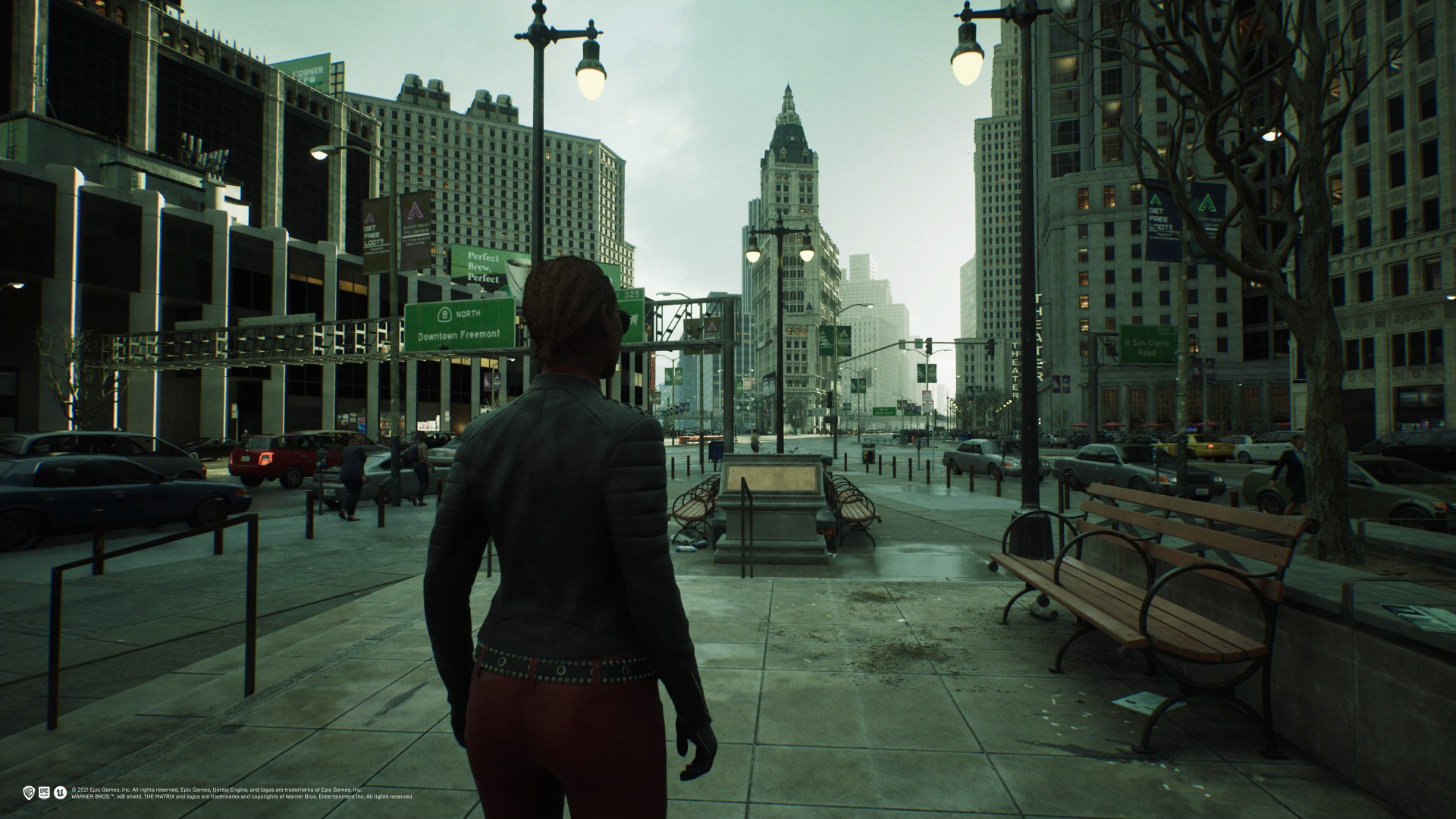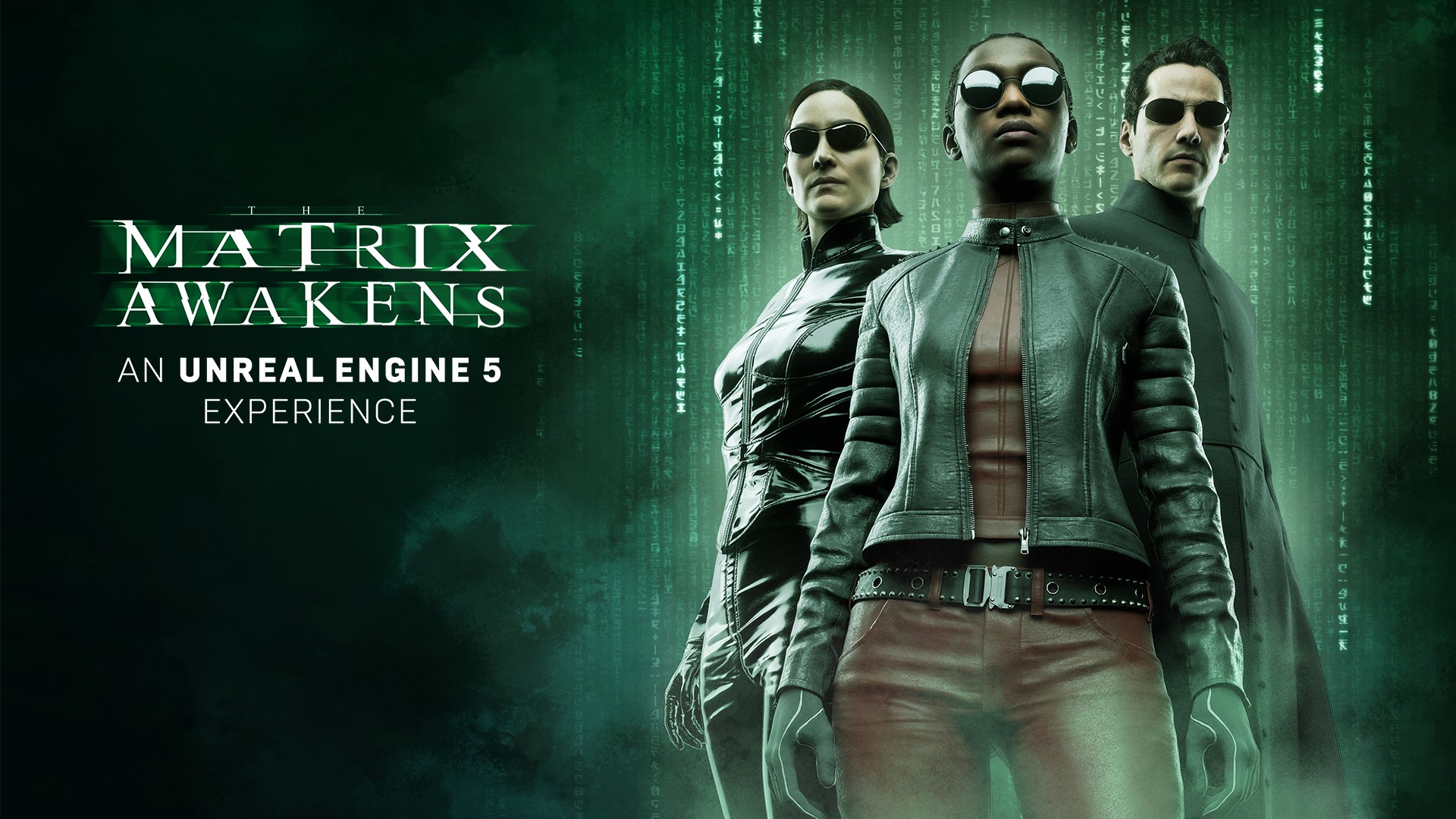Throw to an angry machine if old.

 news.xbox.com
news.xbox.com

How The Coalition Worked with Epic to Bring The Matrix Awakens to Life on Xbox Series X|S - Xbox Wire
Yesterday, in a surprise announcement at The Game Awards, Epic Games revealed that The Matrix Awakens: An Unreal Engine 5 Experience, a new playable Unreal Engine 5 technical demo, was available for everyone on Xbox Series X and Xbox Series S. Created by members of the original “The Matrix”movie...
 news.xbox.com
news.xbox.com
Yesterday, in a surprise announcement at The Game Awards, Epic Games revealed that The Matrix Awakens: An Unreal Engine 5 Experience, a new playable Unreal Engine 5 technical demo, was available for everyone on Xbox Series X and Xbox Series S. Created by members of the original "The Matrix"movie team including Lana Wachowski, James McTeigue, and John Gaeta in collaboration with teams across both Epic Games and partners, this experience offers a glimpse at what interactive storytelling and entertainment created with Unreal Engine 5 could look like in the future.
One of those partners was The Coalition, the studio behind the Gears series, who have been working with Unreal Engine for many years now. With that experience under their collective belt, the team set out to support development of the project. While Epic created the demo, The Coalition got involved helping to refine and optimize their vision, having previously worked with Epic on UE4 support for Xbox Series X.

"We worked with Epic on the initial Unreal Engine 4 support for Xbox Series X when the new console was revealed back in March 2020," says Kate Rayner, Studio Technical Director at The Coalition. "We later shipped a native update to Gears 5 on Xbox Series X|S that added visual enhancements like SSGI, increased material & texture details, and pushed our 4k real-time cinematics to 60fps, all while boosting Multiplayer to support a 120FPS performance mode. Through this we learned how to optimize for that hardware to push visual and performance."
When Epic reached out in 2021, The Coalition had been working with Unreal Engine 5 "Early Access" for almost a year. The team had been collaborating and providing feedback to Epic about their experiences with UE5, which especially helped to push it forward for Xbox Series X|S and Windows PCs. With their track record of creating games that are technical showcases for Unreal and Xbox, along with their collaboration and early experience with UE5, The Coalition was positioned well to jump in and help optimize and polish The Matrix Awakens: An Unreal Engine 5 Experience with Epic.
So what exactly did the team at The Coalition do? A primary focus for them was on memory and performance optimizations to fully take advantage of both Xbox Series X and Xbox Series S. Because the experience features an incredibly large and dense world with a staggering amount of content, the first step was working on memory optimization. In that area, they worked with Epic to ensure the assets in the demo were set up to fully leverage virtual texture streaming and nanite wherever possible and tuned internal memory systems, especially on Xbox Series S, to ensure it all fit in the memory.
On the performance optimizations side, the teams made some threading improvements to improve utilization of the CPU cores. They also made some Xbox Raytracing optimizations, resulting in performance wins of about 0.5ms. Finally, they enabled Vertical Sync tuning to ensure a stable FPS throughout the experience.
With this focus, the Xbox Series S version shipped with all the same UE5 features enabled as Xbox Series X (albeit with different quality) including but not limited to raytraced reflections and raytraced shadows. Regardless of which platform you experience it on, you're in for a visual treat.
"Unreal Engine 5 has continued to improve from the "Early Access" version over the last several months, both in terms of performance and quality. The Matrix Awakens: An Unreal Engine 5 Experience is an excellent example of all of UE5's systems coming together to make something special and noticeably next-gen," says Rayner. "Most of all, it really got us excited for the potential of Raytracing for shadows and Lumen, Nanite at scale with Virtual Shadow Maps, and the new World Partition System tying it all together. With these technical advances, it's never been a better time to be a gamer."





